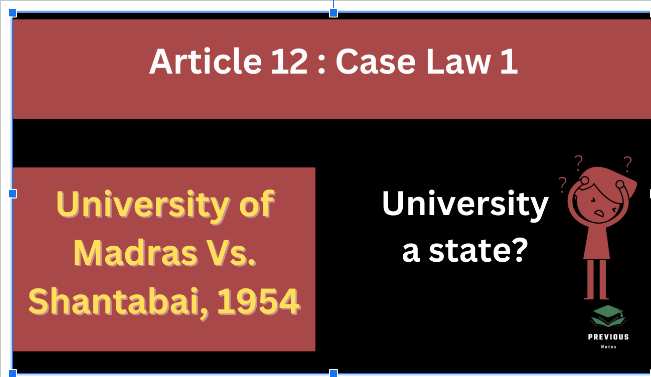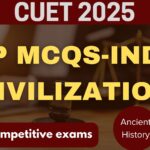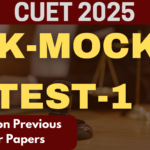University of Madras vs. Shantabai, a state-funded university, fell within the definition of “State” under Article 12 of the Constitution or not, this was the main question tin this case. First of all we should know what is State, definition of State is given under Article 12 of our Constitution, which is as under:

Article 12:
In this Part, unless the context otherwise requires, “the State” includes the Government and Parliament of India and the Government and the Legislature of each of the States and all local or other authorities within the territory of India or under the control of the Government of India.”
Mainly there are four things included in the definition of the State, these are:
- Government and Parliament of India
- Government and the Legislature of each of the States
- Local Authorities
- Other Authorities
University of Madras Vs. Shantabai, 1954
Fact of the Case: Admission to Shantabai was denied due to discrimination (against women) in a State funded University of Madras, Shantabai invoked the Article 14 of the Constitution and filed a writ petition that her right against equality had been violated.
Issues Involved: The main issue involved in this case was whether University of Madras fall under the category of State defined under Article 12 of our Constitution.
This is important why? Because Fundamental Rights can only be invoked against State, these are enforceable against State. If University of Madras is not held as State then there is no question of enforcement of violation of her Fundamental Right.
Decision of Court: Court used the Ejusdem Generis Principle.
The Ejusdem Generis Principle is a legal doctrine used in the interpretation of statutes or contracts when a list of specific items is followed by more general words. The Latin term “ejusdem generis” can be translated to mean “of the same kind” or “of the same nature.”
By using this principle, the Court held that ‘University of Madras’ Cannot be held as State under Article 12 of the Constitution of India.
It is important to note that, the decision of Court in this case was reversed in the later judgement.
You may Also Llike:
You May Also Like:
Indian Penal Code MCQs Quiz: Section 1 to 5
Indian Panel Code MCQs Quiz on Section 511 and Attempt
IPC MCQs Quiz on Sec. 76 and Sec. 79 | Quiz on Mistake
Practice IPC MCQs online for free (Section 78)
Practice IPC MCQs Quiz for free | Section 81 MCQs | Necessity
Practice IPC MCQs online for free : Infancy (section 82-83)
Specific Principles of Criminal Law | LLM Previous Year Paper 2024 | CCSU
Specific Torts | LLM 4th Semester Previous Year Paper 2024 | CCSU
History and Basic Principles of Criminal Law | Previous Paper 2023
LLM Previous Year Paper 2023 | PRIVILEGED CLASS DEVIANCE
PENOLOGY PREVIOUS YEAR PAPER | LLM | CCSU
LLB Previous Year Paper 2023 | Constitutional Law II | CCSU
LLB Previous Year Paper 2023 | Legal and Constitutional History | CCSU
LLB Previous Year Paper 2023 | Jurisprudence II | CCSU
LLB Hindu Law Previous Year Paper 2023 | CCSU
Euthanasia in India, Right to die with Dignity
Right to Privacy Case Law Mr. X vs. Hospital Z
Federal Constitution Definition and key points
University of Madras vs. Shantabai,1954: Article 12 Case Law
Article 20 Fundamental Right with Case Laws
Article 19 Fundamental Right of Indian Constitution with 10 Case Laws
Article 358, 359 Fundamental rights during emergency
Parliamentary Privileges and Fundamental Rights with Case Laws
Article 14 Fundamental Right with Case Laws
Article 15 Fundamental Right with Case Laws
Article 12 Fundamental Right with Case Laws
DOMESTIC VIOLENCE AS TORT | APPLICATION OF TORT LAW
Crimes without Mens Rea? Statute without Mens Rea.
Definition of crime by various jurists, Criminology
Methods of Studying Criminology
All about Capital Punishment with Case Laws
IMPOSSIBLE ATTEMPT | ATTEMPT VS IMPOSSIBLE ATTEMPT
Difference between Preparation and Attempt
Tests to Determine Attempt and preparation | With Case Laws
Specific Principles of Criminal Law | LLM Previous Year Paper 2024 | CCSU
Specific Torts | LLM 4th Semester Previous Year Paper 2024 | CCSU
History and Basic Principles of Criminal Law | Previous Paper 2023
LLM Previous Year Paper 2023 | PRIVILEGED CLASS DEVIANCE
PENOLOGY PREVIOUS YEAR PAPER | LLM | CCSU
LLB Previous Year Paper 2023 | Constitutional Law II | CCSU
Forms of Judicial Process: Adversarial & Inquisitorial
DOMESTIC VIOLENCE AS TORT | APPLICATION OF TORT LAW
Economic Tort | Business Tort: Application of Tort Law
Crimes without Mens Rea? Statute without Mens Rea.
IMPOSSIBLE ATTEMPT | ATTEMPT VS IMPOSSIBLE ATTEMPT
Mistake of Fact Vs. Mistake of Law | Sec. 76 of IPC

















Leave a Reply